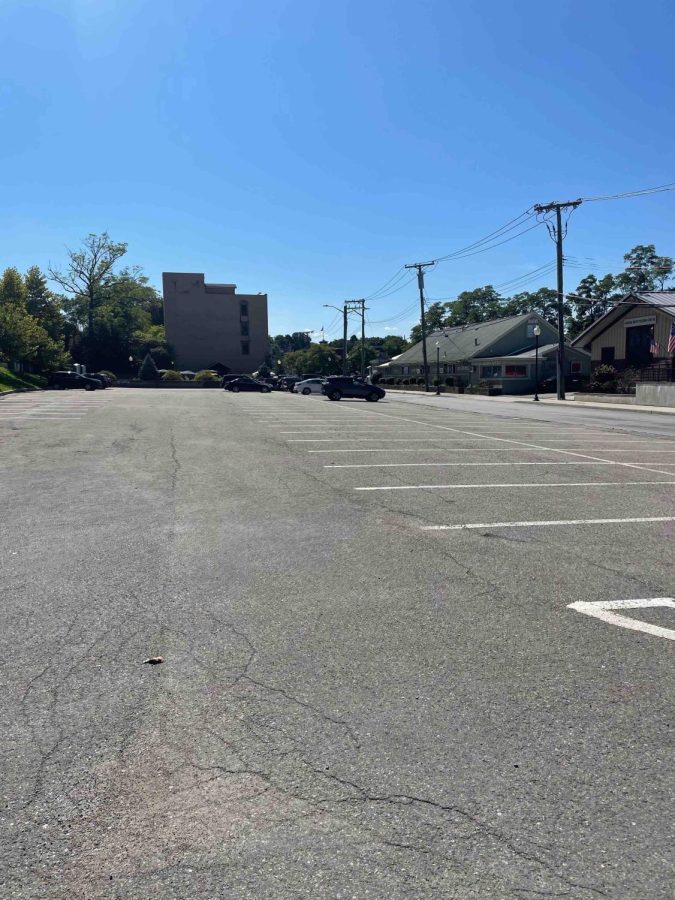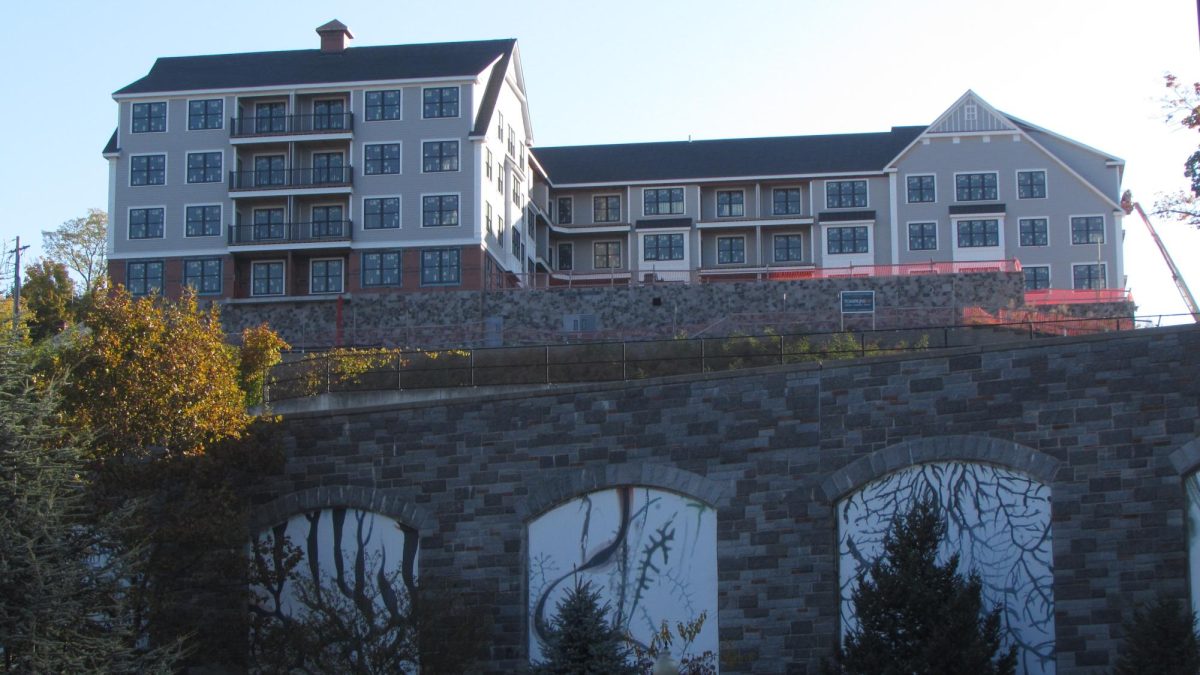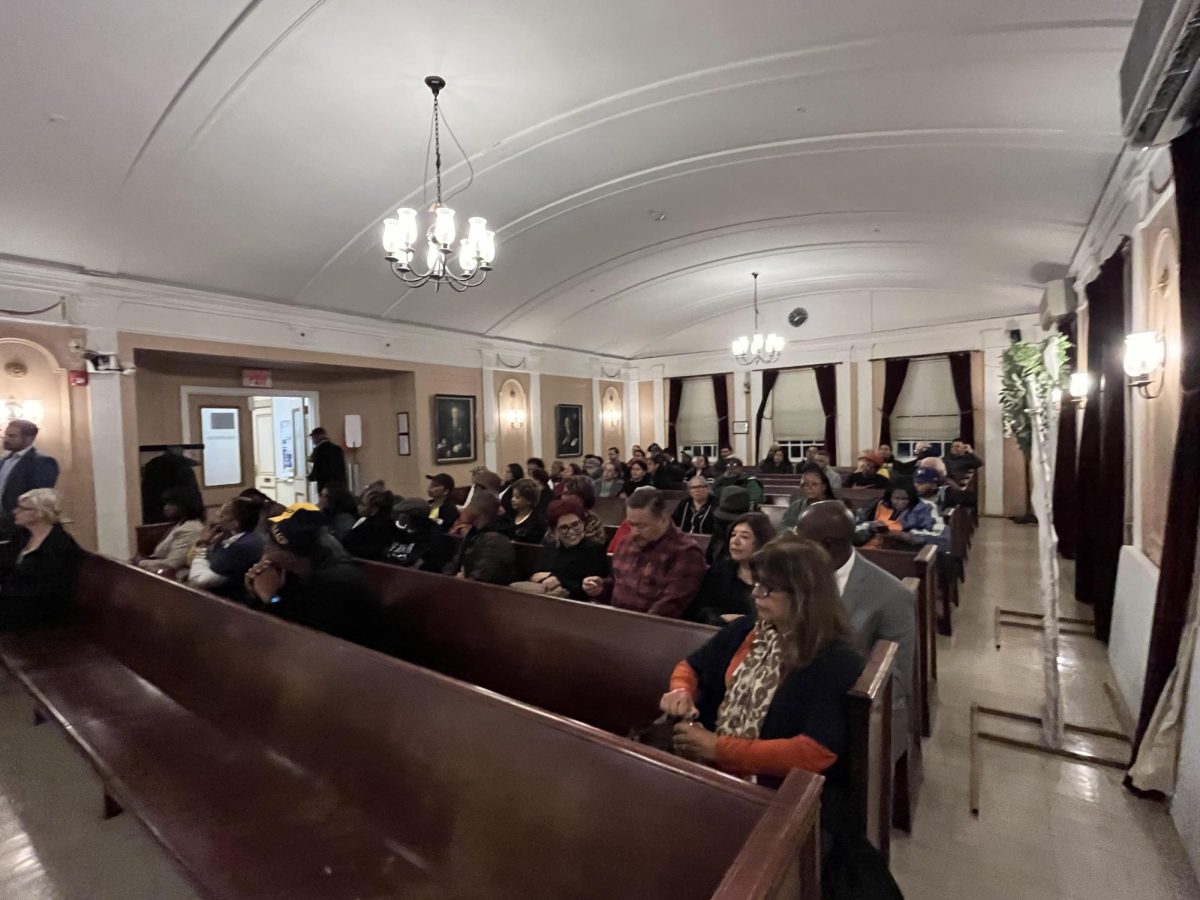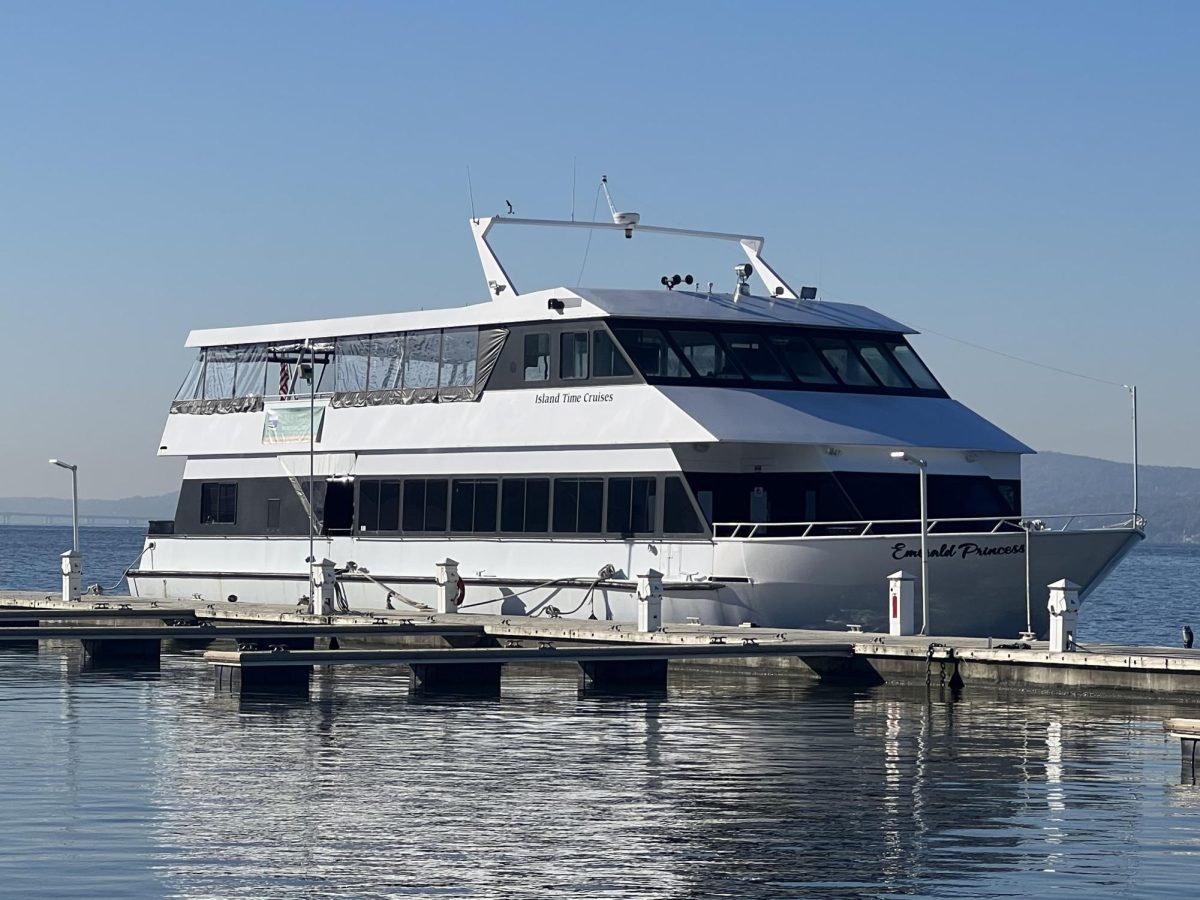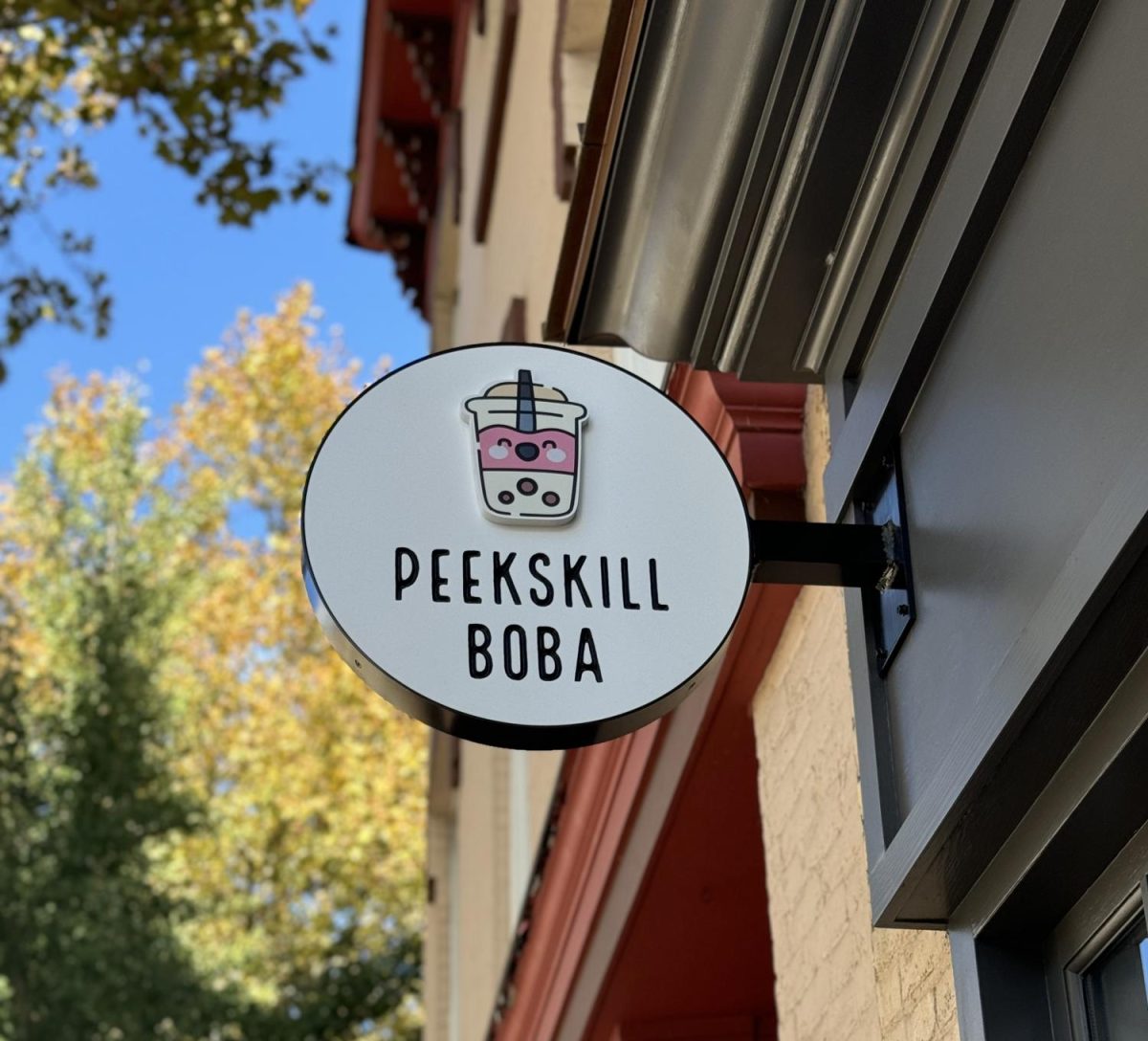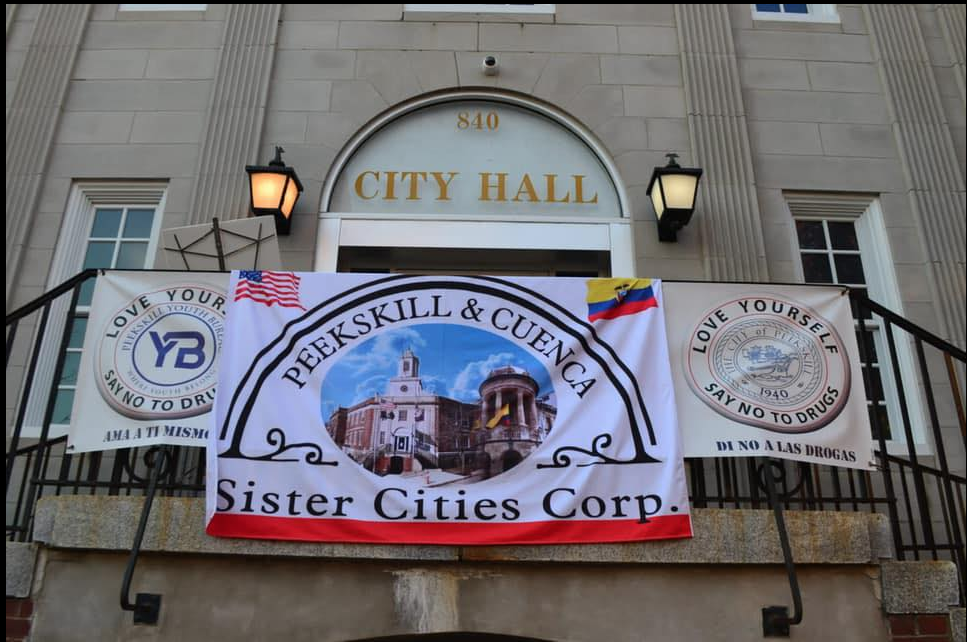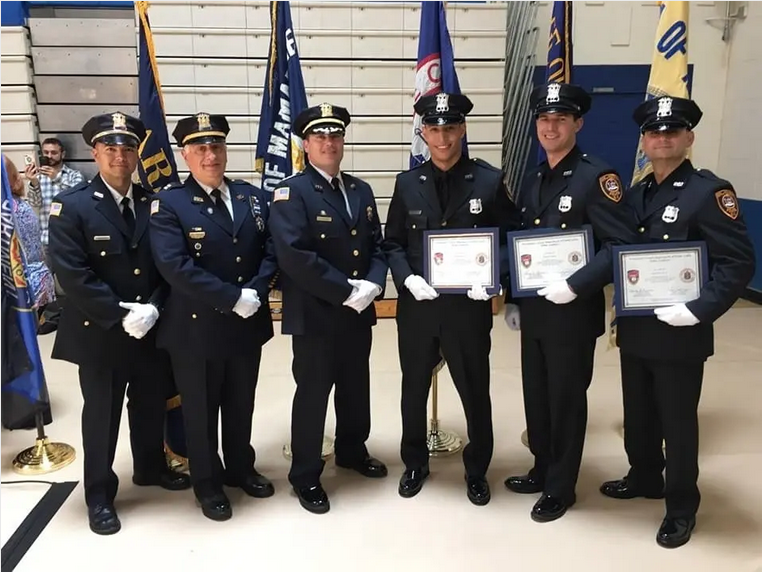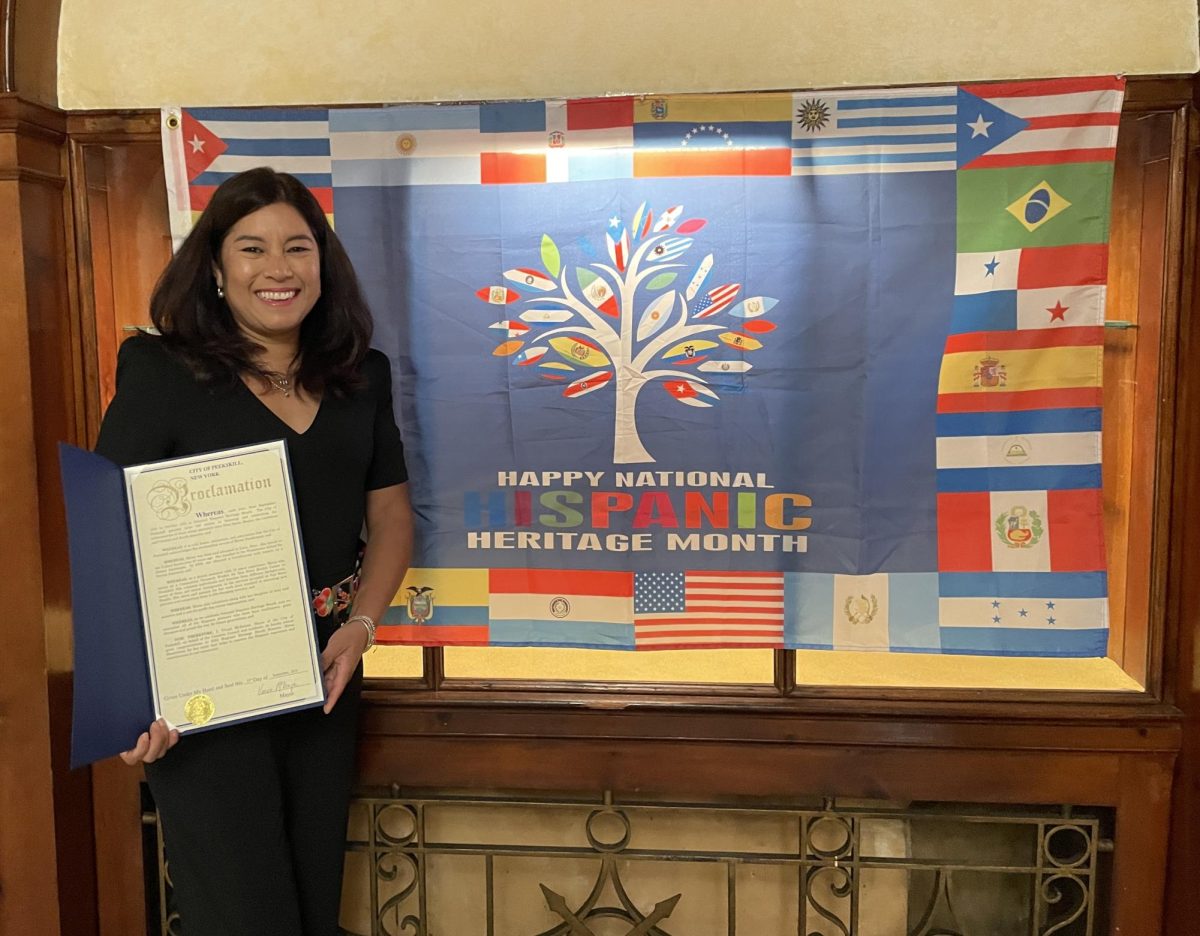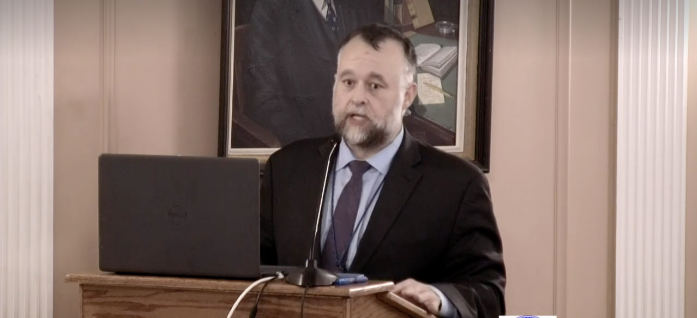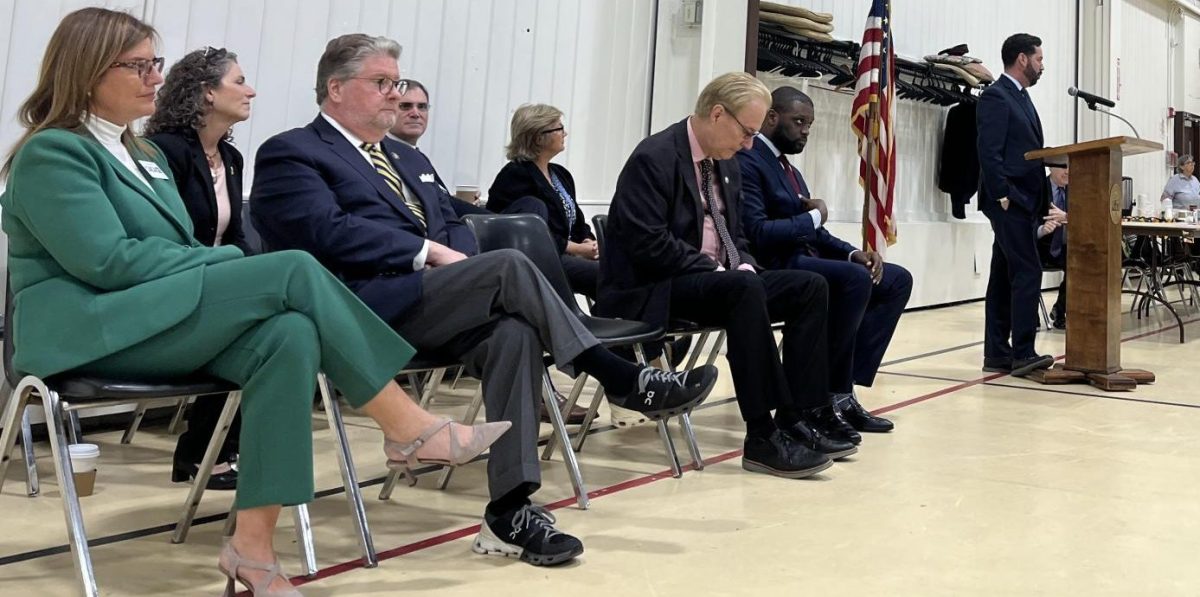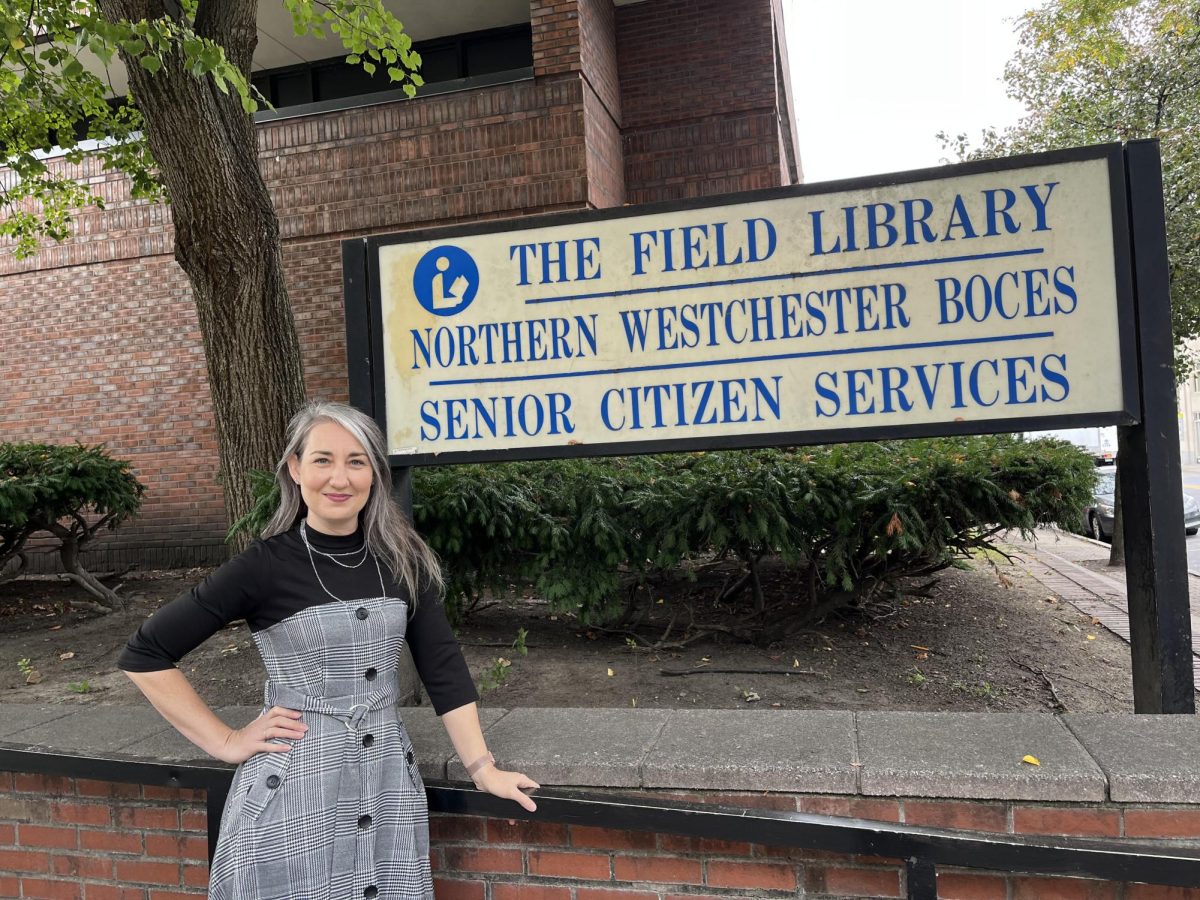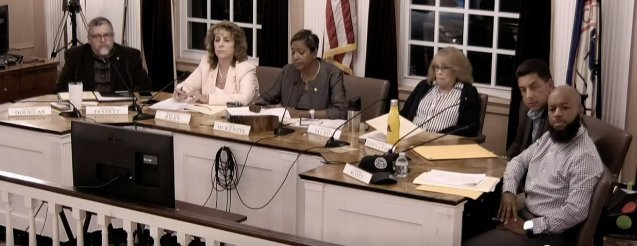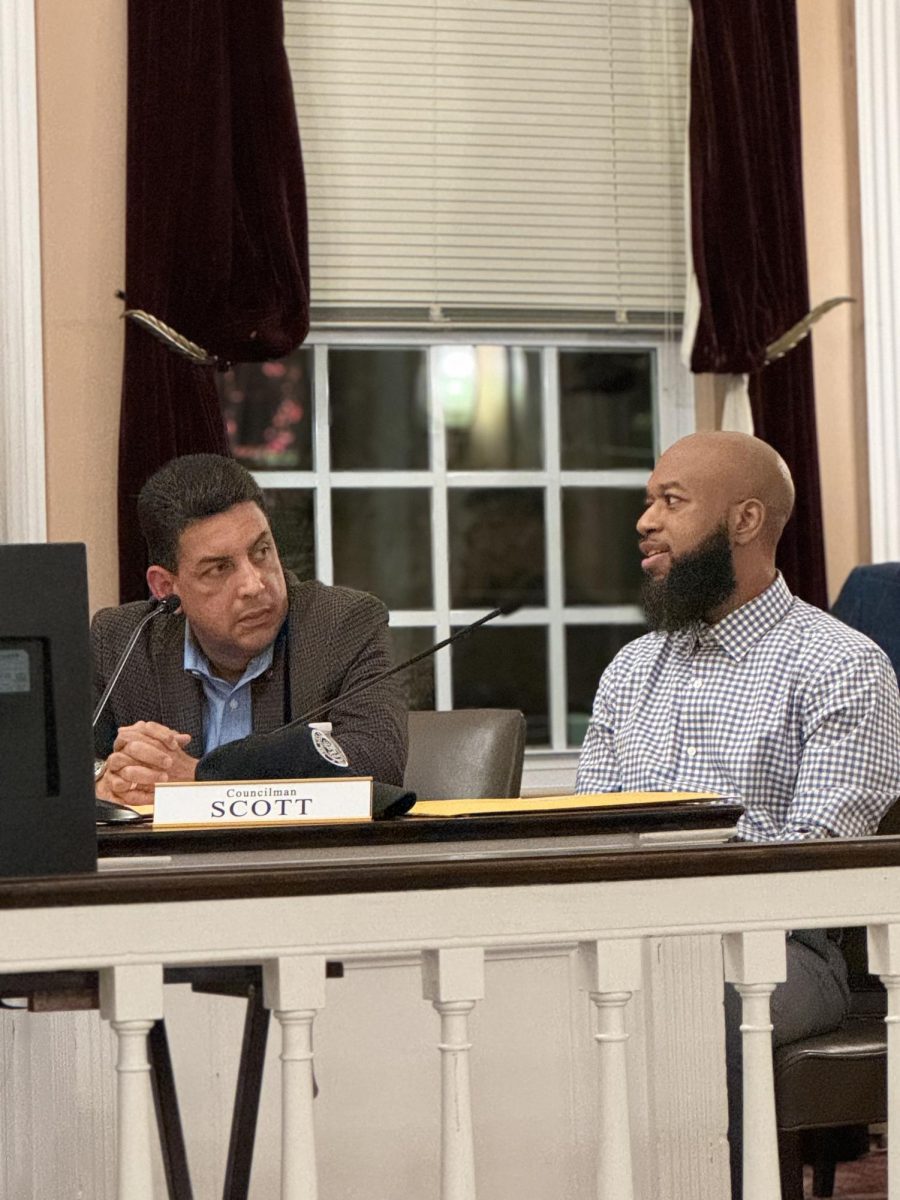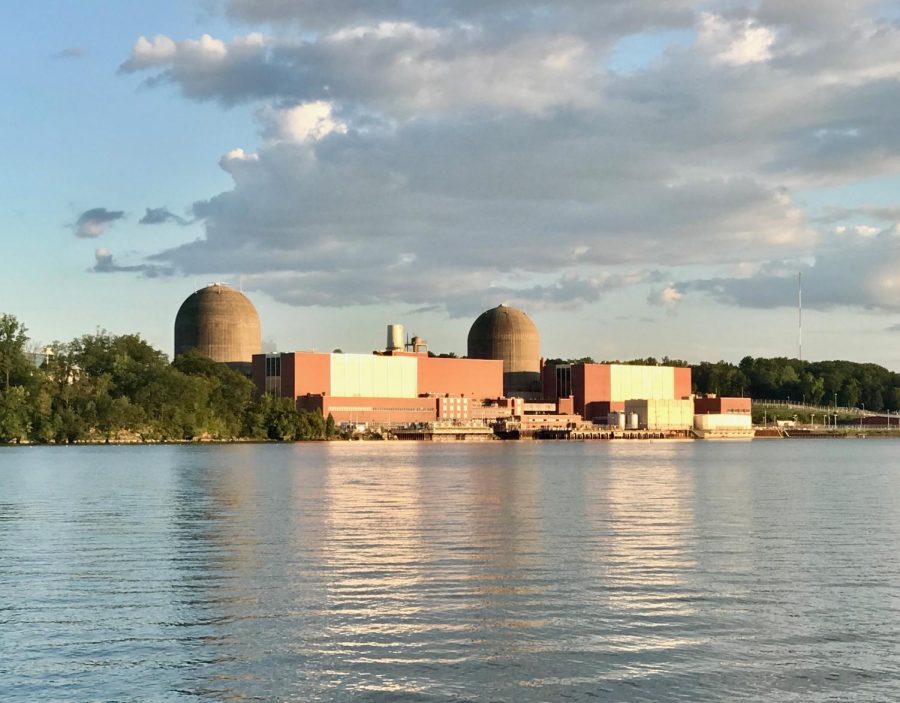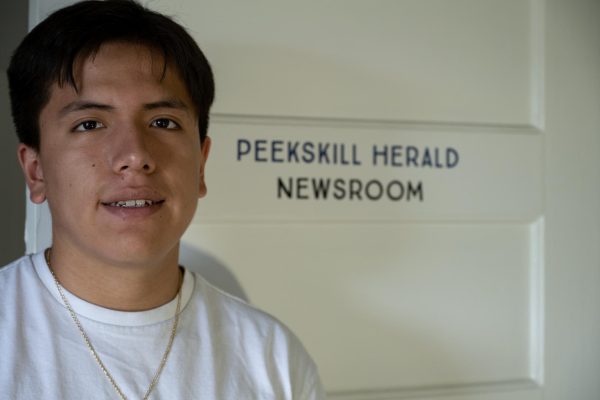“I think it’s time to start doing things a little differently,” said Mayor Vivian McKenzie at the March 18 Common Council meeting. The mayor spoke in support of the Planning Department’s desire to release a Request for Expressions of Interest (RFEI) for the redevelopment of four city-owned commuter parking lots on South Water Street and Railroad Avenue in the center of the city’s waterfront district.
The RFEI differs from the city’s typical development approach for public properties, where the Planning Department usually has a specific design in mind, and then receives bids from companies to carry out that vision. For the parking lots, the Director of Planning Carol Samol noted that the city is “open to ideas.” She thinks “developers will be intrigued” by the possibility to pursue their own creativity.
At its March 18 meeting, the Common Council heard four presentations from the Planning Department on: 1) “Enlighten Peekskill”, a three-part public arts initiative; 2) Request for Expressions of Interest (RFEI) for redevelopment of four city-owned parking lots; 3) a Department of Transit grant opportunity; and 4) Congressional funding opportunities.
March 18 Common Council Meeting
RFEI for the Redevelopment of City-Owned Parking lots
On March 18, Samol spoke about the Planning Department releasing the RFEI for the redevelopment of four city-owned commuter parking lots along the waterfront.
Samol’s memo to the council outlined the parcels’ attractive aspects: they are within easy walking distance of the Metro North train station, are near city parks on the Hudson River, and have easy access to Route 9A and the Bear Mountain Parkway. Samol stated the city hopes to leverage these features to bring housing, commercial, and other mixed uses to the waterfront district.
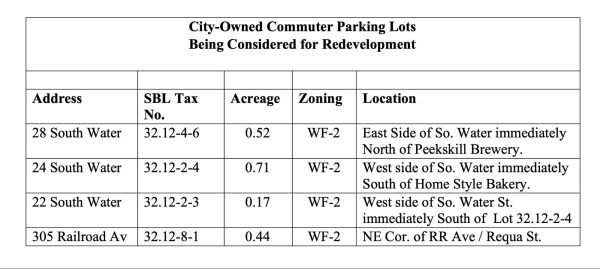
According to Samol’s memo, the goal of the RFEI process is to encourage suitable developers to submit ideas without having to write a “full scale and resource intensive proposal”. It will also help the city better understand the available development options. Submissions to the RFEI will be used to select developers who may be asked to provide additional information to the city. Ultimately, the city will select one or more developers to shape the final proposal(s).
Councilman Rob Scott had concerns over the language in the Planning Department’s memo, “I don’t know if this would entice or inspire the best.” He took issue with the city being able to take information received in response to the RFEI, and use it to select a preferred developer or in negotiations. Scott added that this RFEI might suit someone without much experience and would just like the opportunity; rather than an experienced developer who most likely would not respond to an RFEI.
In response, Samol stated any developer who responds to the RFEI will need to have references and the department could revisit the memo’s language. “The reason we like the RFEI is that it’s not putting just a box that we want developers to fit within, but we’re open – we’re open to ideas and what they might want to see in a particular site. It could be housing, it could be an entertainment center,” said Samol.
She continued, “It’s actually pretty rare to have city owned parcels of this size, in this kind of a location, in transit-oriented development, on the Hudson River… We need to make sure it gets in the right hands and we need to get that out broadly. This is a difficult time for construction and for building. So having just ideas at this time is maybe not a bad thing.”
After discussion was held between council members about the RFEI process, Mayor McKenzie stated. “Let’s see what comes back in, we’re not developing today, tomorrow, but let’s see what we get and if we get good stuff – great, if we don’t then we go back to what our next process is.”
At the March 25 meeting, the Common Council unanimously passed a resolution authorizing the release of this RFEI.
Enlighten Peekskill Artworks
On March 18, City Planner Peter Erwin discussed “Enlighten Peekskill”, which is funded by the Hudson Valley Museum of Contemporary Art (HV MOCA) through $500,000 in DRI funding.
The Planning Department sought authorization to accept the following: a mural depicting Harriet Tubman by artist Carlos Jefferson (for the Fern Tree, 13 South Division Street); and three murals by Steve Erenberg depicting themes selected in collaboration with Peekskill Coffee House (101 South Division Street).

The third piece discussed was “Ole Man River” by artist Robert Brush, which is an illuminated frieze depicting a Paul Robeson song lyric. Erwin explained the artwork will be installed on the facade of The Central (300 Railroad Avenue). Installation of the piece requires written approval by the Metropolitan Transit Authority, which owns the building and leases it to the operators of The Central.
Councilman Brian Fasssett noted that the sculpture is not a Paul Robeson quote, but is a song lyric from the musical Showboat, which Robeson is famous for singing. Fassett added that the lyric refers to the Mississippi River, not the Hudson River. Fassett requested more information on the sculpture and how it would be lit.
Councilman Dwight Douglas commented, “The work that’s being done for this Enlighten Peekskill and the DRI stuff is just terrific, and when it’s all up it’s going to be quite something.”
Councilman Rob Scott expressed disapproval of the “Ole Man River” sculpture, stating he did not understand what the artist was trying to convey with the piece. “I think that we can do better… if we’re going to highlight black contributions – I think we can do better than a slave tune.” There was an exchange between Councilman Scott and Councilwoman Kathleen Talbot about the “Ole Man River” piece, which ended with Talbot expressing her support for the sculpture.
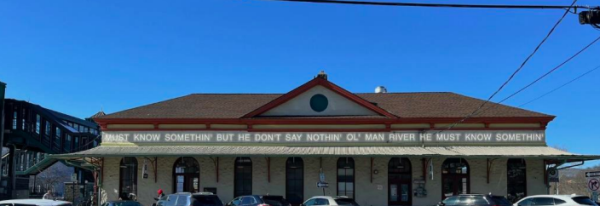
Scott added, “Whenever we want to have a discussion about black people, the first thing we run to is something with slavery – we’ve contributed way more to this country than that narrative.”
Erwin suggested that the artist or representatives from HV MOCA or the Peekskill Arts Alliance could speak to the council about the piece. Mayor Vivian McKenzie agreed to have the artist come in to discuss what their intention was.
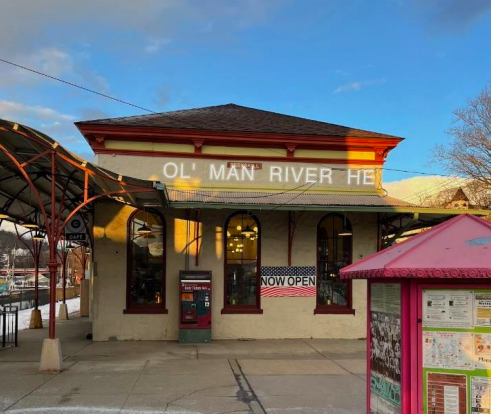
At the March 25 meeting, the council unanimously passed two resolutions authorizing the city manager to accept the art donations from Carlos Jefferson and Steve Erenberg. The resolutions also authorized the city manager to enter into a memorandum of understanding with the property owners of 13 South Division Street and 101 South Division Street to access the exterior of the building to repair/remove the mural.
Safe Streets and Roads for All (SS4A) Grant
At the March 18 Common Council meeting, Erwin spoke about a U.S. Department of Transit (DOT) federal grant opportunity, Safe Streets and Roads for All (SS4A). The minimum grant amount for planning is $100,000 and the maximum grant amount is $10 million, with a 20 percent local match required. The Planning Department recommended the city apply for $500,000 of SS4A funding. The funds would be used to develop a Comprehensive Traffic Safety Action Plan, part of the city’s ongoing comprehensive planning effort.
According to the US DOT website, the SS4A program funds regional, local, and Tribal initiatives to prevent roadway deaths and serious injuries.
The city applied for SS4A implementation funding last summer to complete the city’s Pedestrian & Cyclists Connectivity DRI project, although the application was not approved. When addressing the council, Erwin explained that the reason the city didn’t receive the grant was because the grant funders felt the city had to do more planning before seeking funding to implement projects.
“They [U.S. DOT] expect to award 50 capital grants across the whole country but hundreds of planning grants. So, in speaking with the US DOT and with Carol [Samol], we felt like it was a good opportunity to apply this year, but for planning funding.” said Erwin.
At the March 25 meeting, council members unanimously passed a resolution authorizing the city manager to submit a grant application for approximately $500,000 in SS4A funding.
Congressional Directed Spending Application
Samol recommended that the council apply to the city’s Congressional representatives to support several significant program and infrastructure needs, through the Congressional Directed Spending process. According to her memo to the council, this funding opportunity allows members of congress to request funds in the annual federal budget to be allocated for specific projects in their states.

Projects under consideration for this funding include: Hudson River resilient shoreline study and engineering to address increasing flood levels (est. $1 million); Community Hub expansion and enhancements (est. $750,000); a new fire engine (est. $1.1 million); and Complete Streets construction across 18 blocks downtown (est. $2 million). Samol noted most federal programs require a 20% local match but due to timing and nature of this funding, there will be sufficient time to budget for city match requirements in future budget approvals.
At the March 25 meeting, the council unanimously passed a resolution authorizing the city manager to apply for Congressional Direct Spending by the deadline, Friday, April 5, 2024.
March 25 Common Council Meeting
At its March 25 meeting, Peekskill’s Common Council unanimously passed a local law adopting new parking fine and meter rate schedules. The increases were originally presented by City Comptroller Toni Tracy at the Feb. 20 Common Council work session and a public hearing was held on March 11 (four business owners spoke in opposition of the increases). As noted by Mayor McKenzie in a previous meeting, parking fines will go into effect immediately but the implementation of meter rate increases will take around three months.
On March 25 the council also unanimously passed a total of 11 resolutions, including the acceptance of two Youth Bureau grants.

